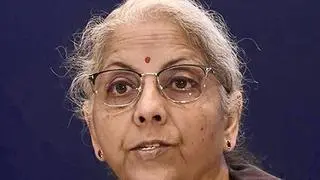David Cameron will visit India for the third time in three years as Britain’s Prime Minister ahead of his trip to Sri Lanka for the 2013 Commonwealth Heads of Government Meeting.
Cameron will visit New Delhi to meet Prime Minister Manmohan Singh, and will attend the Prabodhan conference, followed by a trip to Kolkata, where he will meet Chief Minister Mamata Banerjee, a person familiar with matters told Business Line .
Cameron last visited India in February, when he led a more than 100-person-strong delegation.
The current trip should be seen in a number of contexts. Firstly, India-UK trade relations present a mixed picture. While trade has been on the increase – UK exports to India are up 25 per cent in 2013, and Indian exports to the UK have risen 10 per cent in the same period, many believe the relationship is far from where it could be.
“I think it would be right to say we have fallen behind very badly in FDI into and from India,” says Barry Gardiner MP, who heads the group, Labour Friends of India, who last year warned that India had downgraded its relationship with the UK. “It is right to say that the UK is not one of the key partners for India,” he told Business Line on Wednesday. “We would certainly like to have a far stronger trade relationship with India.”
Prime Minister Manmohan Singh has not visited the UK during Cameron’s premiership.
The British Prime Minister may also raise the matter of the impending decision on whether or not Vodafone owes over $2 billion in taxes relating to its 2007 takeover of the Indian operations of Hutchison Whampoa – an issue that has been raised by several members of the government on previous trips to India.
Visa issue
The visit also comes after a period when the India-UK relationship came under pressure following attempts by the British government to introduce a £3,000-visa bond for “high risk” visitors from India and five other commonwealth nations. The plan was dropped in early November in the face of widespread criticism, from within the government, Indian business groups, and the Indian community in the UK. “The opportunity to drop into India gives him the opportunity to potentially mend fences,” says Gareth Price of Chatham House in London.
Observers will also be watching to see what gestures will be made to India – either on boosting investment opportunities and visas – following Chancellor George Osborne’s trip to China last month, during which regulations were relaxed to enable Chinese wholesale banks to operate in the UK, and visa regulations for some visitors were eased. “Britain has made substantial progress on trade, business and the visa regime with China, and making a big thing of how primary the relationship between the two countries are, so he may have felt it was important to come to India to see the same sort of progress in India,” says Gardiner.








Comments
Comments have to be in English, and in full sentences. They cannot be abusive or personal. Please abide by our community guidelines for posting your comments.
We have migrated to a new commenting platform. If you are already a registered user of TheHindu Businessline and logged in, you may continue to engage with our articles. If you do not have an account please register and login to post comments. Users can access their older comments by logging into their accounts on Vuukle.